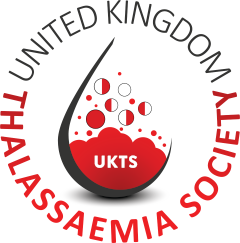Nutrition in Children
Food preferences and eating behaviours develop early in a child’s life therefore, making healthy habits from early on will be beneficial for their health. These habits are likely to continue into adulthood so, it is important to start making healthy eating habits from an early age.
Childrens behaviour is influenced by the people they interact with and people they observe. Children’s friends act as peer models as watching other children’s eating behaviours can influence the way other children want to eat. Parents also act as a role model for children and their eating habits can also influence their child’s eating behaviours. Therefore, it is important to bare this in mind as this might be a factor to consider when trying to understand why a child won’t want to eat some foods and would prefer others. A reward system, such as a sticker chart, may also help children to eat more fruit and vegetables for example as they will associate eating these foods with something positive and in turn, may reinforce healthier eating.
It is also important to note that food preference is also a factor to take into consideration and trying new foods to see what children prefer. As long as the child is eating a healthy balanced diet, trying out alternatives is encouraged e.g. if a child does not like cheese, try and offer a yogurt or smoothie with milk to ensure they eat other calcium sources.
Below will cover some areas that are crucial for children’s development and health:

Bones
Calcium is an important nutrient for building and maintaining bone and teeth strength. A diet high in calcium will increase storage of calcium in bones which can prevent bones becoming weak, fracturing and leading to osteopenia (reduced bone mass) and osteoporosis. The peak time for storage is during the teenage years. It is during this time that the bones reach their adult length and strength. Therefore, ensuring that children and teenagers consume enough calcium is so important as this will influence their bone strength and health when they are older.
Vitamin D is also important for bones as it helps the body to absorb calcium. The main source of vitamin D is from the sun and is found in small amounts in food sources. As it is getting darker earlier and the weather is not as sunny, vitamin D levels are likely to decrease, and this can result in the development of different symptoms e.g. fatigue, muscle weakness. It is of increased importance for individuals with darker skin complexions, as the increased melanin in the skin reduces the skin’s ability produce vitamin D from the sun. Check with your consultant as they typically prescribe vitamin D3 supplements based on individual test results if required.
Encouraging children to exercise and carry out weight bearing exercise such as running, walking, skipping, dancing and playing sport will increase the density of the bones and make them stronger. For more information, check out the exercise page.
Growth
Under nutrition is a factor that contributes to stunted growth in children with thalassaemia major. Therefore, ensuring children are eating enough is so important as plays a massive role in their growth and development.
Protein also plays a role as it supports repair and growth of muscles. It is important to note that every child has specific needs that are individual to them. For nutritional advice that is tailored to a child, please ask a GP to be referred to a dietician.
Zinc also supports growth and development during pregnancy, childhood and adolescence. For more information about zinc and sources of zinc check out advice for patients. It has been shown that sufficient nutritional support can contribute to increasing the likelihood of normal growth (Fuchs et al, 1996) (Nutritional factors and thalassaemia major.)
Iron
For children with thalassaemia, it is recommended to keep their iron under 10mg/day. Check out more information about iron and iron food sources. In the advice for patients section.
